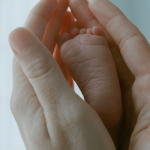Archive for the ‘★ ★ ★ ★’ Category
The disclaimer at the beginning says it all, “You should know up front, this is not a love story.”
And essentially, it is not. How can it be, when one of the parties does not even believe in the concept of love?
I chose this film for perusal at this year’s Melbourne International Film Festival simply because I had heard the (Venice Film Festival award-winning) cinematography was well worth the price of admission on its own. Call it seeking out inspiration for an upcoming filmic project. In this regard, I was not disappointed. Neither, did Paper Soldier fail to live up to the warning I had received before the screening, “EXPECT TARKOVSKY!”
For those not in the know regarding Soviet cinema, Andrei Tarkovsky can best be described through his constant and spectacular use of long, long tracking shots, of the most balletic nature, mostly devoid of dialogue. Paper Soldier however, is not directed by Tarkovsky, but rather Aleksei German. It’s often billed as the Russian Right Stuff (do yourself a favour if you haven’t checked out that particularly epic Tom Wolfe adaptation and devour it, please), but Paper Soldier is less bravado and gung-ho than balletic, thoughtful and grey. Really, where the similarities start and end is the fact that both films explore the space race between the two superpowers…and it seems fitting that both films seem to exemplify their respective schools of cinema; gung ho, epic Hollywood, and a rather more introspectively self-aware Soviet cinema. It’s certainly an unlikely way of telling the story of the Russian side of the space race – the entire period of history lends itself to all the fanfare and rousing chorus of a blockbuster. Cosmonaut training is barely touched on, in fact. Rather, the film fixates itself on the chain-smoking doctors of the mission.
Relationship struggles in films often centre on a clash of personalities when concerning one thing or another. When it’s hard to pay the rent or falling out of love, couples turn on each other to point the finger and find someone to blame. What Hollywood rarely depicts is the influence of a disorder in a relationship, especially those where social capabilities are limited. Perhaps it fails on their romantic scale, which is strange because there’s certainly enough emotive power to ride that out. If it’s good enough to be ‘It’ writer Diablo Cody’s latest project (with TV’s United States of Tara), then it must have value.
Ask someone under the age of 20 what the word apartheid means, and there’s a good chance they’ll just look at you like you’ve got some kind of speech impediment. Ask them again once they’ve see District 9, telling them to replace the Aliens in the film with the black population of South Africa, and maybe then they’ll start to get the picture. That’s because Neill Blomkamp’s ambitious feature debut is an engaging, action-packed history lesson in South African politics.
I can’t remember the last time I walked out of an Australian film sporting a smile. That’s not to say they’re bad; on the contrary, the industry is at the top of its game in terms of quality. It’s just that they have been all doom and gloom of late, and Beautiful Kate makes no effort to be an exception. Exploring a cocktail of dark and controversial themes, the film revolves around a dysfunctional family still trying to come to terms with a 20 year old tragedy. It’s certainly tough viewing, but Rachel Ward’s feature debut is a superbly executed and deeply affecting piece of Australian cinema that deserves to be seen.
Australia’s crime and its underworld are wealthy sources full of story ideas, but while TV audiences have been recently spoilt with the likes of Underbelly and East West 101 moviegoers have hardly received the same treatment. The same seems to apply with ethnic representations; characters with European backgrounds largely outweigh those of Middle Eastern descent. With Sydney’s drug scene as the focus of Cedar Boys we see young Lebanese-Australians enter the criminal world to make a quick buck – but it’s clear that they’re not the bad guys.
Ah, how Hollywood presents so many possibilities. Its two biggest child stars, Dakota Fanning and Abigail Breslin, in the one film? Sounds intriguing enough, and for My Sister’s Keeper it looked to be a go, but Fanning eventually pulled out (allegedly for refusing to shave her head) and the dream pairing was gone. The first Jodi Picoult novel to be adapted for cinemas has more than its fair share of A-listers, and as one of her biggest sellers the film has fielded high expectations. As an adaptation it will satisfy most fans, and as a stand-alone film it is beautifully crafted.
Films within cinema’s spectrum that have the most interesting of back-stories are more often than not forgotten over time. This doesn’t exclude the Australian industry, where unless there is a large public interest the stories remain largely untold. Thankfully, the National Film and Sound Archive has taken an interest in resolving the issue and has stepped forward with the digital restoration of Wake In Fright. The history behind this film is remarkable, and audiences deserve to know what a shame it would’ve been had this film been destroyed.
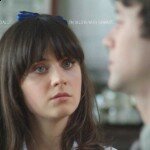





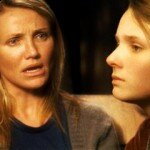
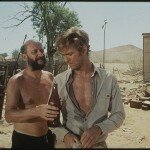




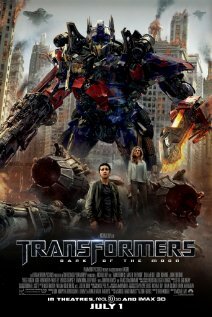

![The Troll Hunter [Trolljegeren] (Video Review)](/wp-content/uploads/1102_the-troll-hunter-150x150.jpg)

